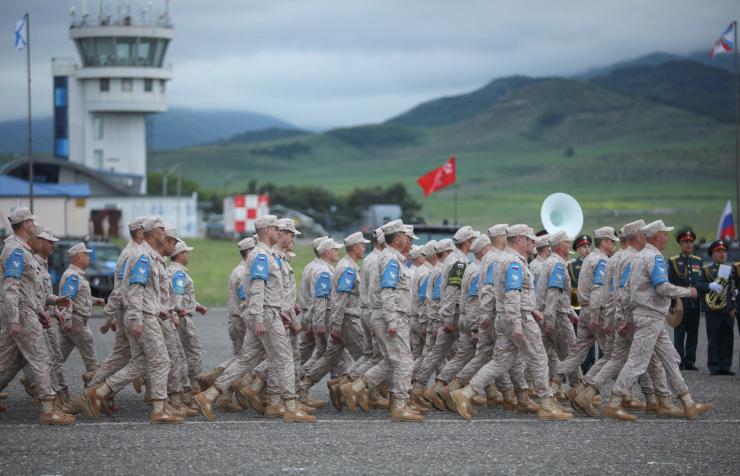The News
Armenia’s Prime Minister said on Wednesday that the South Caucasus country plans to leave the Collective Security Treaty Organization, an alliance often described as a “Russia’s answer to NATO.”
Nikol Pashinyan told the Armenian parliament that the timeline for departure was not yet finalized, but said that “there is no other way.” “The members of the alliance are not fulfilling their contractual obligations, but are planning a war against us with Azerbaijan,” he said.
Armenian officials have previously criticized Russia and the CSTO for failing to come to Armenia’s aid during clashes with Azerbaijan. On Wednesday, Russian peacekeeping forces completed their withdrawal from Nagorno-Karabakh, a disputed border enclave that Azerbaijan gained control of last year, marking a strategic win for Baku, according to the Russian newspaper Kommersant.
SIGNALS
Armenia looks for alternatives to Russia
Armenia is looking for new security partners, including to the West. Yerevan signed a deal to collaborate with France on air defense and held joint drills with US troops last year, but it is also looking to build ties with non-Western countries, such as India. Yet Armenia’s economic dependency on Russia means “its complete departure from Moscow’s orbit does not seem realistic,” an expert told Politico. Armenia will likely try to balance fostering ties with the West with the need not to incur the Kremlin’s wrath, two RAND analysts wrote in Just Security.
Russia loses influence in its ‘near abroad’
Armenia’s attempt to loosen its ties to Russia is part of a wider trend of Russia’s neighbors pushing for greater autonomy from Moscow, Thomas de Waal wrote in Carnegie Europe. Moldova and Armenia are currently the only post-Soviet states considering a dramatic transformation of their relationship with Russia, but others are pushing for increased independence, the Caucasus expert argued. For example, Kazakhstan has distanced itself from Russia’s invasion of Ukraine, and strengthened its ties with China, Turkey, and the EU, according to an expert at the European Council on Foreign Relations. “Across the region, Russia’s prestige and power are not what they were even three years ago,” a Financial Times reporter said.
Concessions to Azerbaijan unpopular, but Armenia has few alternatives
In the last few days, thousands of Armenians have taken to the streets to protest against the prime minister’s concessions to Azerbaijan, demanding that the government resign. The prime minister’s decision to give four abandoned villages to Baku that were part of Azerbaijan during the Soviet era sparked significant anger, as many Armenians feel they are getting little in return for significant territorial concessions. The prime minister has said a peace treaty is approaching completion. Armenia may have little choice but to push for a diplomatic resolution: “Azerbaijan’s military is far more powerful than Armenia’s; it could within a matter of hours take control of swaths of Armenian territory,” according to an analyst at the International Crisis Group.



